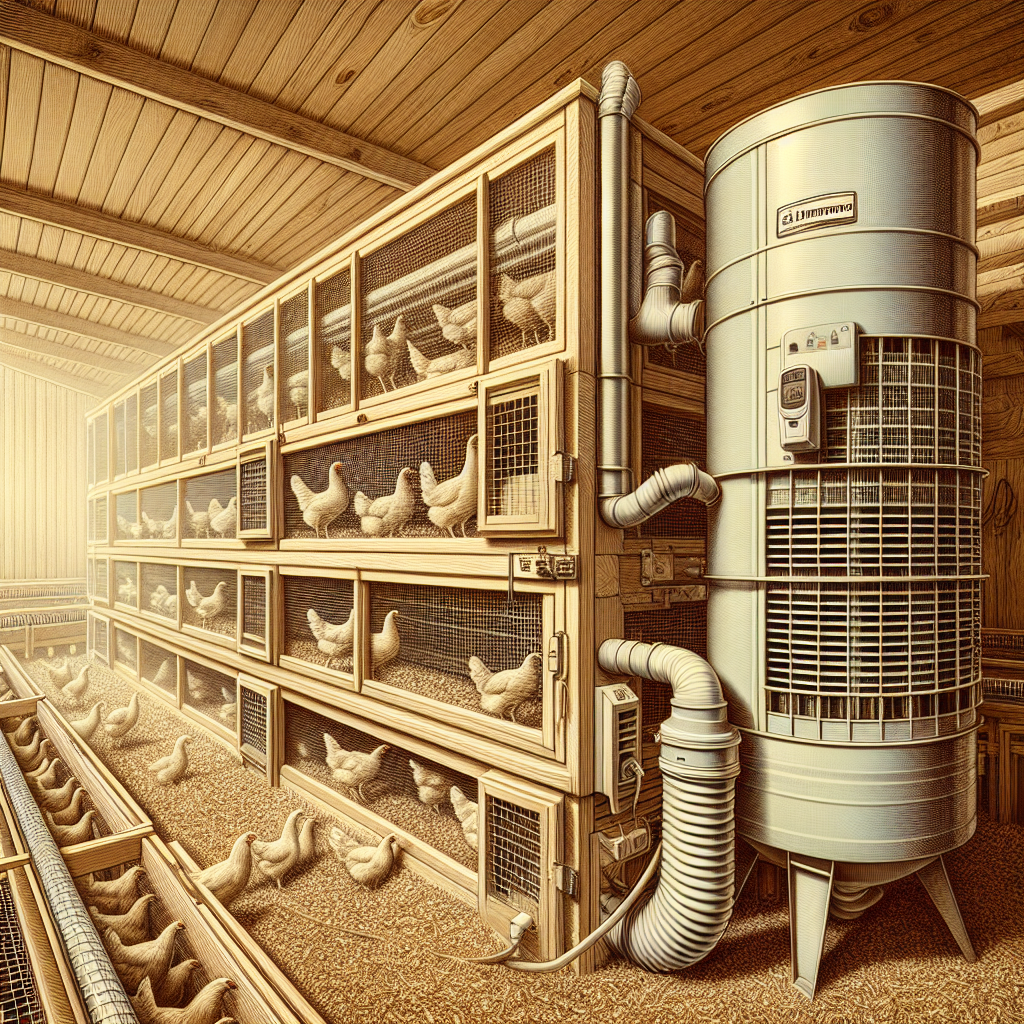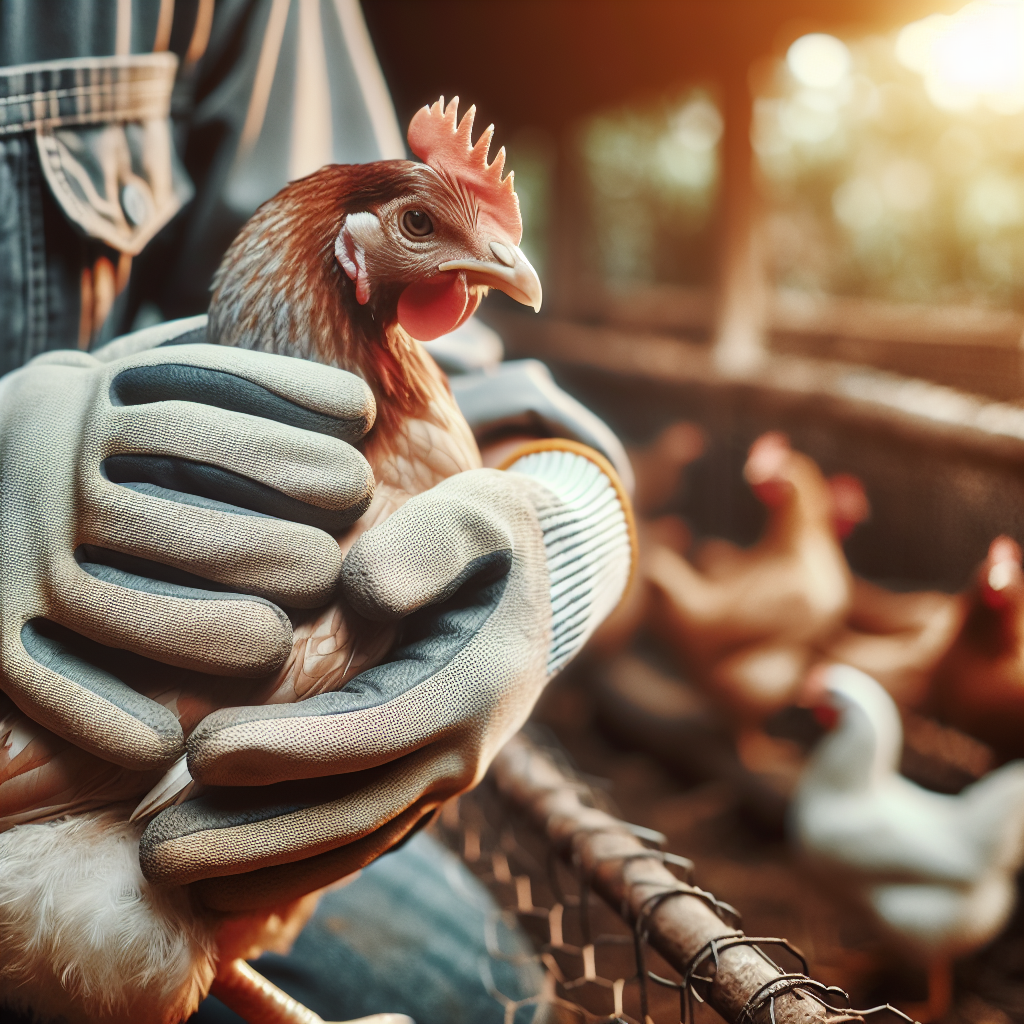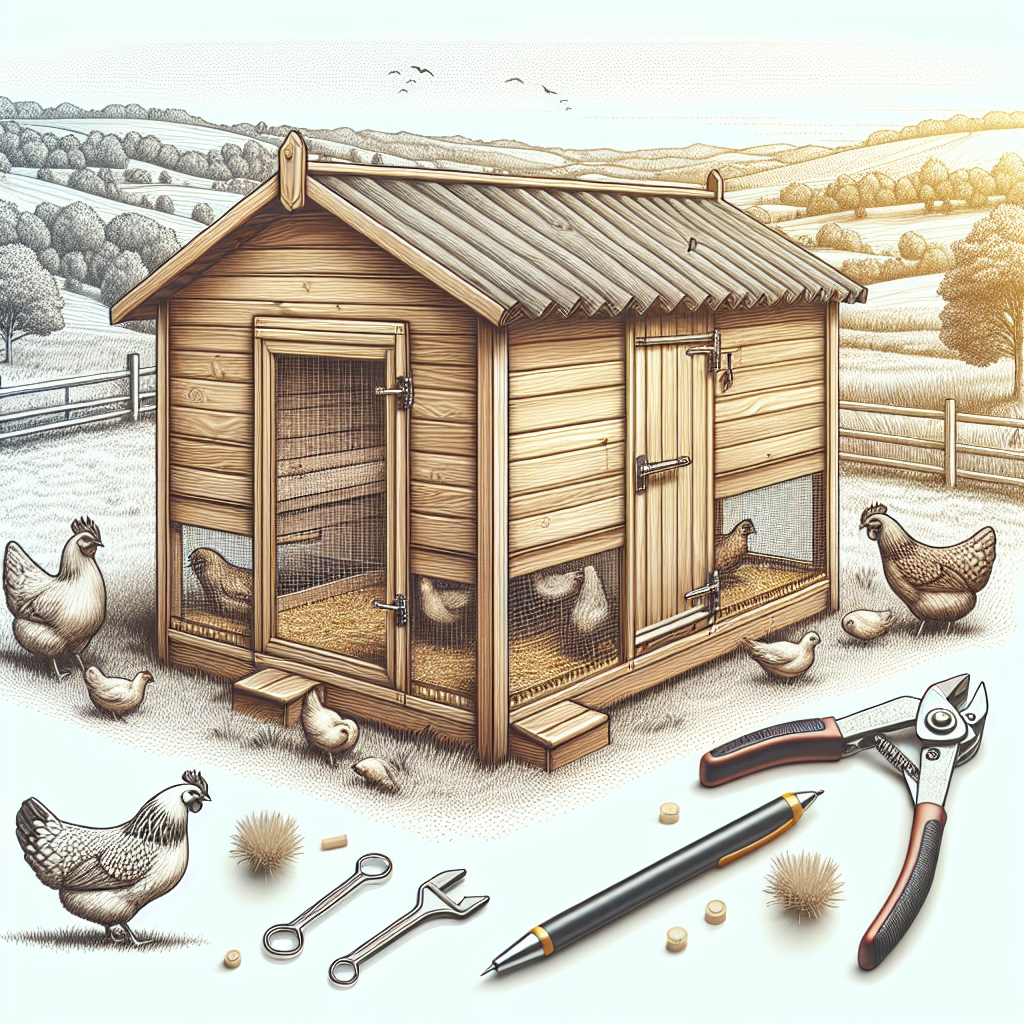Moisture and mold problems in your coop can be a frustrating and worrisome issue for any chicken owner. The build-up of moisture and the growth of mold can not only harm the health of your chickens but can also damage the structure of the coop itself. In this article, we will explore some practical tips and techniques to effectively handle moisture and mold issues through proper coop maintenance. By implementing these measures, you can ensure a clean and healthy environment for your feathered friends, keeping them happy and thriving.
Understanding Moisture and Mold Issues
Moisture and mold issues are common problems that can arise in coops. Understanding the causes, areas affected, and the health risks associated with these issues is crucial in order to effectively address and prevent them.
Identifying the Causes of Moisture and Mold Issues
Moisture and mold issues can be caused by a variety of factors. Some common causes include high humidity levels, water leaks, condensation, poor ventilation, and inadequate insulation. Identifying the underlying causes is essential for developing an effective plan for prevention and remediation.
Common Areas Affected by Moisture and Mold
Moisture and mold issues can affect various areas within a coop. Some common areas that are prone to such problems include bathrooms, kitchens, basements, and areas near water sources such as pipes and drains. Additionally, poorly insulated walls or roofs can also provide an environment for moisture and mold growth.
Health Risks and Consequences of Moisture and Mold
Exposure to moisture and mold can pose serious health risks. It can lead to allergy symptoms such as coughing, sneezing, and congestion, as well as respiratory issues, asthma attacks, and skin irritations. Prolonged exposure to mold can also result in more severe health conditions. Therefore, addressing moisture and mold issues promptly is essential for safeguarding the health and well-being of coop residents.
The Importance of Addressing Moisture and Mold Issues
Addressing moisture and mold issues is crucial for various reasons. Besides the health risks, unchecked moisture and mold problems can cause structural damage to the coop over time, leading to costly repairs. Moreover, these issues can also affect the aesthetics of the coop, creating an unpleasant living environment. By addressing these issues proactively, coop owners can ensure the longevity of their structures and provide a safe and comfortable living environment for residents.
Preventing Moisture and Mold Issues
Prevention is key when it comes to moisture and mold issues. By implementing certain maintenance practices, coop owners can significantly reduce the risk of these problems occurring.
Maintaining Proper Ventilation
Proper ventilation is essential in preventing moisture and mold issues. Ensure that rooms prone to high humidity, such as bathrooms and kitchens, have adequate ventilation systems in place. Additionally, regularly inspect and clean ventilation ducts to prevent blockages that can hinder the airflow.
Monitoring and Controlling Humidity Levels
High humidity levels can contribute to moisture and mold problems. Use dehumidifiers in areas where humidity tends to be high, such as basements. Additionally, keep an eye on humidity levels using hygrometers and take necessary steps to keep them within the recommended range (around 30-50%).
Insulating and Sealing Coop Structures
Proper insulation and sealing of coop structures can help prevent moisture intrusion and condensation. Insulate walls, roofs, and foundations with appropriate materials to prevent heat transfer and minimize the chance of condensation occurring. Regularly inspect and repair any gaps or cracks that can allow moisture to enter the coop.
Managing Water Sources and Leakages
Water leaks can lead to moisture accumulation and mold growth. Regularly inspect and maintain water sources such as pipes, faucets, and drains to ensure they are in good condition and free from leaks. Promptly repair any leaks that are detected to prevent further damage and moisture-related issues.
Dealing with Existing Moisture and Mold Issues
In some cases, moisture and mold issues may already be present in a coop. Addressing these issues effectively is essential to prevent further damage and ensure the health and safety of residents.
Assessing the Extent of the Problem
Before taking any remedial actions, it is important to assess the extent of the moisture and mold problem. This can be done by conducting a thorough inspection of the affected areas, looking for visible signs of mold growth and identifying areas of high moisture. Understanding the scope of the problem will help determine the appropriate remediation measures to be taken.
Removing Mold and Drying Affected Areas
Removing mold and drying affected areas is a crucial step in dealing with existing moisture and mold issues. Safely remove any visible mold using appropriate personal protective equipment. Once the mold is removed, thoroughly dry the affected areas using fans, dehumidifiers, and proper ventilation. This will prevent further mold growth and minimize the risk of recurrence.
Repairing and Rebuilding Damaged Structures
If moisture and mold have caused structural damage, it is important to repair and rebuild the affected areas. Replace any damaged materials, such as drywall or insulation, and ensure that the affected areas are properly sealed to prevent future moisture issues. It may be necessary to seek professional assistance for complex repairs and reconstruction to ensure proper and safe restoration of the affected areas.
Regular Coop Maintenance Practices
Regular maintenance practices are essential in preventing moisture and mold issues in the long term. By incorporating these practices into your coop maintenance routine, you can significantly reduce the risk of these problems occurring.
Regular Cleaning and Sanitizing
Regularly clean and sanitize all areas of the coop to prevent the buildup of moisture and mold-friendly environments. Pay special attention to high-humidity areas, such as bathrooms, and promptly clean up any spills or water leaks to prevent moisture from accumulating.
Inspecting and Repairing Any Damage
Regularly inspect the coop for any signs of damage or potential moisture intrusion points. Repair any cracks, gaps, or leaks promptly to prevent moisture from entering the structure. By addressing small issues early on, you can prevent them from developing into larger and more costly problems.
Monitoring and Maintaining Ventilation Systems
Regularly inspect and maintain ventilation systems to ensure proper airflow throughout the coop. Clean or replace filters as needed and ensure that air vents are unobstructed. Regularly check ventilation fans in bathrooms and kitchen areas to ensure they are functioning properly.
Ensuring Proper Drainage and Gutters
Good drainage is essential in preventing moisture issues. Regularly clean and inspect gutters and downspouts to ensure they are free from debris and working effectively. Additionally, ensure that the grading around the coop allows water to flow away from the building’s foundation to prevent water pooling and moisture penetration.
Using Effective Mold Prevention and Remediation Products
In addition to regular maintenance practices, there are various mold prevention and remediation products available that can further enhance the prevention and control of moisture and mold issues.
Choosing the Right Mold Prevention Products
When selecting mold prevention products, consider their effectiveness, safety, and compatibility with the surfaces to which they will be applied. Look for products that contain antimicrobial properties to prevent mold growth and are specifically designed for the areas you intend to treat.
Applying Mold-Resistant Paints and Sealants
Mold-resistant paints and sealants can provide an extra layer of protection against mold growth. These products are formulated to resist moisture and inhibit the growth of mold and mildew. Apply them to walls, ceilings, and other surfaces prone to moisture exposure to help prevent moisture-related issues.
Utilizing Mold Testing Kits for Regular Monitoring
Regularly monitoring the presence of mold is important in identifying issues early on. Mold testing kits are available for home use and can provide a quick and easy way to test for the presence of mold. By regularly monitoring for mold, you can detect any potential problems and take appropriate actions before they worsen.
Seeking Professional Assistance and Expertise
In some cases, addressing moisture and mold issues may require professional assistance and expertise. Mold remediation specialists and coop maintenance professionals can provide valuable guidance and services to effectively address and prevent these issues.
Contacting Mold Remediation Specialists
If moisture and mold issues persist or if they have caused severe structural damage, it may be necessary to contact mold remediation specialists. These professionals have the knowledge, skills, and equipment to safely and effectively remove mold and restore the affected areas. They can also provide recommendations for preventing future moisture-related problems.
Consulting with Coop Maintenance Professionals
Coop maintenance professionals can offer valuable insights and expertise in preventing and addressing moisture and mold issues. They can assess the overall condition of the coop, identify potential problem areas, and provide recommendations for maintenance practices to minimize the risk of moisture and mold.
Educating Yourself and Coop Residents
Educating yourself and coop residents about moisture and mold issues is important in creating awareness and ensuring everyone contributes to prevention and maintenance efforts.
Raising Awareness about Moisture and Mold Issues
Provide educational materials and information to coop residents about the causes, risks, and consequences of moisture and mold issues. By raising awareness, residents will be more vigilant and proactive in preventing and addressing these problems.
Providing Guidance on Prevention and Maintenance Practices
Offer practical guidance on preventive measures and regular maintenance practices that residents can adopt. Provide instructions on maintaining proper ventilation, monitoring humidity levels, and promptly addressing water leaks. By empowering residents with the knowledge and tools to prevent moisture and mold issues, you can create a cooperative effort in maintaining a healthy living environment.
Organizing Training and Workshops
Organize training sessions and workshops on moisture and mold prevention for coop residents. Invite professionals to share their expertise and demonstrate effective maintenance practices. These sessions can provide a valuable platform for residents to ask questions, exchange ideas, and develop a shared commitment to preventing moisture and mold issues.
Conclusion
Moisture and mold issues can be a challenge, but with proper understanding, prevention, and maintenance, they can be effectively managed. By identifying the causes, implementing preventive measures, addressing existing issues, and maintaining regular coop maintenance practices, you can create a healthier and safer living environment for you and your coop community. Remember, seeking professional assistance when needed and educating yourself and coop residents is essential in ensuring effective moisture and mold management. By taking proactive steps, you can prevent costly repairs, protect your coop’s structural integrity, and prioritize the health and well-being of everyone involved.




